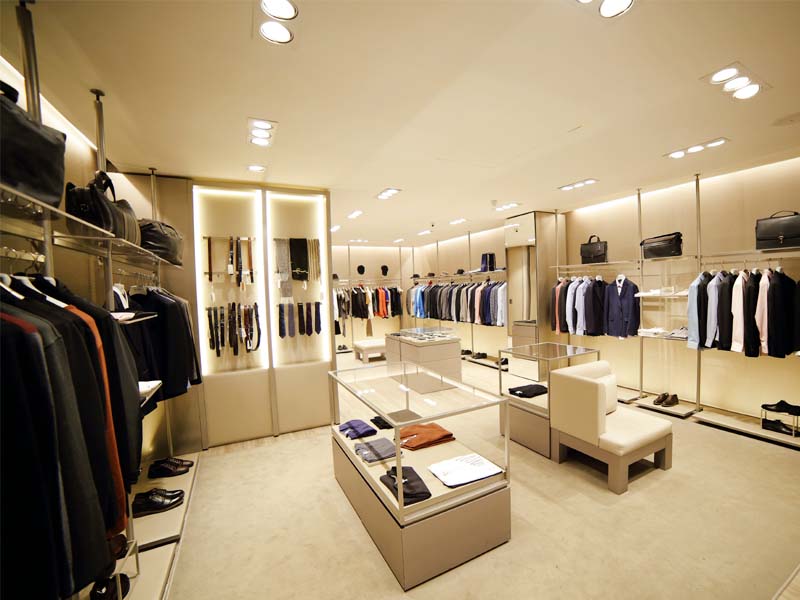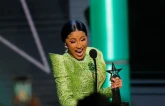
Pakistan’s overriding security cauldron may have cast doubt over how lucrative the market is for an influx of foreign retail brands. But the recent growing number of international entrants in the local market tells another story.
In fact, recent trends suggest international brands prefer to set up standalone shops instead of selling through multi-brand stores in the country. The Express Tribune talks to people behind foreign retail franchises, both old and new, to explore if and how their local presence has been worthwhile.
Ralph Lauren and Armani Collezioni are the most recent to have ventured into the Pakistani market. Having been launched earlier this year by retail group Sefam, the brands’ entry into Pakistan is testament to the enhanced demand of foreign luxury brands among local consumers. Zain Aziz, the entrepreneur behind the two brands in Pakistan, says, “Pakistani consumers have become increasingly sophisticated and are well-aware of trends so, [according to our market research], we have found that people want international luxury brands here.”

Pepe Jeans
CEO of alkaram Studios Abid Umer, who also manages Mango, Lifestyle, Splash and Babyshop in Pakistan, shares why he opted for introducing these brands in the local market. “We targeted the market through certain brands with particular price points. Since our market is very price-conscious, we went with affordable luxury.”
Saad Akram of the denim brand Pepe Jeans shares the brand’s prices are 20 per cent less than the stores worldwide, due to which they have a limited sales margin. “It is not difficult to bring these brands to Pakistan but to sustain them, as they have stringent policies and an aggressive development plan of opening 11 stores in four years,” he states. A long-time international clothing retailer, who asked to remain anonymous, notes, “Local brands can be transformed immediately if something is not going their way but international brands follow strict guidelines.”
With the aim of bringing brands that are the best in their respective segments to Pakistan, Aziz shares how people want to shop at global brands in the local market. “Given the limitations many people face in travelling abroad, more people want to shop locally,” he explains. Touting luxury as “part of our heritage,” Aziz shares there just haven’t been enough outlets to “indulge in this desire.” Armani is known to be a conservative brand that’s usually confined to markets where it has an established presence but its foray into Pakistan shows they deemed it to be an inarguably viable front for sales.
Read: Fashion Revolution: For the Kaarigar behind your clothes
Having an official presence paves the way for a myriad of opportunities for consumers, such as ordering for items not available off-the-rack. As in Armani’s case, consumers would get the chance to personally meet the brand’s tailor Andrea Castellana, who is flying in from Milan later this month to get clients’ measurements for bespoke suits.

Splash
Armani, which currently stocks for only men, keeps standards and prices abreast with those across the world. “The stock is the same as the one in England and Milan and [is made available] ahead of Dubai. It’s more competitive than Dubai even in terms of prices,” notes Aziz, adding that the brand is now testing the market for further expansion.
Umer shares, “Our shops are up to par with international standards. At Mango, even the music that plays in the background is connected to the server in Barcelona so, everyone hears the same thing.” But Aftab Sheikh, who has brought Quiz Clothing and M&Co to the local market, shares their prices are cheaper than those in the Middle East but higher than the United Kingdom, where his brands originate from.
What about other luxury and mass retail brands and their potential entry into the market? Akram shares he is soon to open Calvin Klein, OnTop Barcelona and Silvian Heach in Lahore. Sheikh says the brands have been garnering satisfactory sales and that he now plans on “bringing in BHS and US Polo, but waiting for new malls to be opened in Lahore.”
Speaking of the current dearth of malls in the city, many entrepreneurs consider this as one of challenges in way of introducing new franchises in the market. Umer holds, “They need the right kind of space to operate and we don’t have enough malls. The market is not ready [for brands such as H&M, Forever 21 and Zara].” This problem may be short-lived, however, as there are a number of malls under construction in Lahore, pointing towards how the retail game is only expected to improve in the country.
Sheikh complains of the exorbitant prices and taxes that do not allow a businesses such as his to be as competitive. “This is a new market but we have a lot of barriers to entry. The government should encourage us instead of imposing heavy taxes on us.”
Published in The Express Tribune, September 13th, 2015.
Like Life & Style on Facebook, follow @ETLifeandStyle on Twitter for the latest in fashion, gossip and entertainment.

1720097164-0/BeFunky-collage-(9)1720097164-0-165x106.webp)
1730446133-0/BeFunky-collage-(7)1730446133-0-165x106.webp)


1730536640-0/Express-Tribune--(2)1730536640-0-270x192.webp)











COMMENTS (2)
Comments are moderated and generally will be posted if they are on-topic and not abusive.
For more information, please see our Comments FAQ